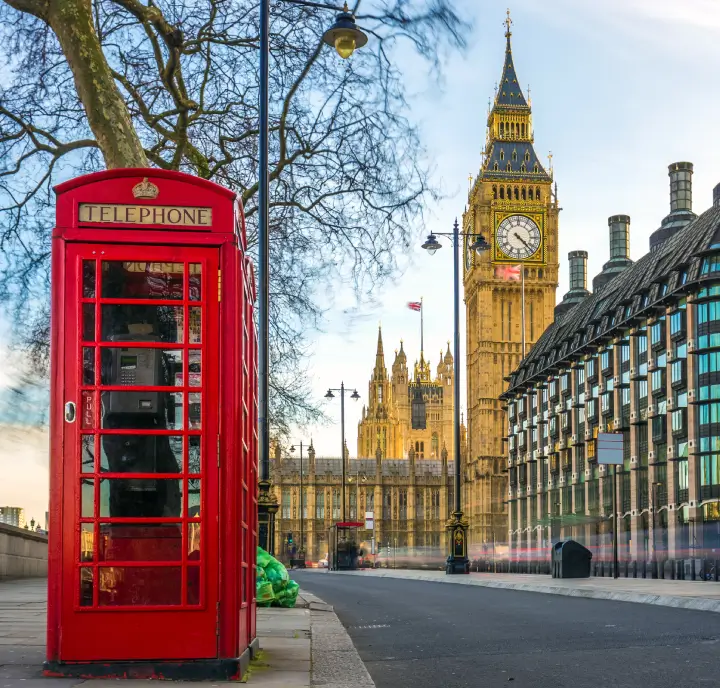Monday - Friday: 9:30am - 5:30pm
Collaborative Family Law
Collaborative family law is a non-confrontational approach used to resolve issues after the breakdown of a marriage.
Monday - Friday: 9:30am - 5:30pm
Collaborative family law is a non-confrontational approach used to resolve issues after the breakdown of a marriage.
Collaborative family law involves both parties sitting down alongside their lawyers with the aim of reaching an amicable agreement face to face. The collaborative family law process can be a very cost effective in helping both sides reaching a solution without unnecessary conflict. At Josiah-Lake Gardiner, our collaborative divorce solicitors regularly represent clients in such issues and carry vast experience within collaborative family law.
To book an initial consultation with our collaborative divorce solicitors in London, simply call 020 3709 8975 or complete our online enquiry form.
Reaching a financial settlement or agreeing arrangements for any children with your spouse/civil partner after your relationship has broken down will depend largely on what your relationship with your spouse/civil partner is and how complex your respective financial affairs are. You may be dealing with assets held abroad, inherited wealth, complicated pensions and business structures, assets held in trust from which the family spending is paid and even the existence of pre or post nuptial agreements.
If your shared intention is to resolve matters quickly and amicably, you may initially attempt to agree matters directly with your spouse/civil partner, but the more complex your finances or your family situation is the less likely you may be able to resolve matters yourselves.
Whilst mediation can assist some couples to resolve financial issues with the assistance of a neutral third party independent mediator who is not permitted to offer legal advice to either party, because of the risk of a possible power Imbalance between parties or where one party does not feel able to conduct negotiations unassisted, it might not be suitable
If mediation is not successful or is not something that the parties are willing to consider, there are further options for spouses/civil partners to consider with regard to resolving matters out of court including the collaborative law process which involves direct face to face negotiating between the spouses/civil partners and their lawyers at round table meetings.
The Collaborative Family Law process is a non-court based way for separated/separating couples to resolve disputes about finances and/or their children. It provides an open and non-confrontational approach to resolving matters. Each party appoints his or her own collaboratively trained family lawyer and the parties and their respective lawyers all meet together to work things out face to face.
Each party will have their lawyer by their side throughout the process and so will have their support and legal advice as the meetings progress. Each person involved (the parties and the collaborative lawyers) must at the outset sign an agreement that commits them to trying to resolve all issues without going to court. The solicitors are prevented from representing the parties in court if the collaborative process breaks down, which ensures that everyone is absolutely committed to finding the best solutions by agreement, rather than through court proceedings.
The Collaborative Law process is voluntary and largely confidential. However, if the parties are discussing finances (particularly how to divide up the assets between them on separation, divorce or civil partnership dissolution), there will need to be a full and complete disclosure of their finances, but such disclosure is not confidential, although any settlement negotiations resulting from such disclosure will continue to be confidential in the event that agreement is not reached and an application is made to the court. All discussions in the mediation are private and when both parties know discussions are private this lends itself to a full and frank sharing of ideas, aspirations and concerns. This can pave the way for an agreement to be reached.
The first thing to note is that the Collaborative Law process is not for everyone and is not intended to be so. It is just one of a number of possible out of court routes to reaching the agreement.
Not all family lawyers are collaboratively trained and so able to work in this way. Some people are put off by the risk of not being able to retain their solicitor if the agreement cannot be reached and an application is ultimately made to court to resolve matters. The process requires a measure of good will, compromise, flexibility and creative thinking.
For some, whilst willing to settle out of court, the prospect of direct face to face negotiations, even with their lawyers present, is daunting or off-putting. Only you can decide whether the process is right for you and your family. It is the job of the solicitor to give you full information about the process, so that you are equipped t make the best decisions for you.
The Collaborative Law process focuses on the future and should not be a re-hash of the problems and issues that led the couple to the point of separation (which is what couples counselling is for after all). The parties and their collaboratively trained family law solicitors will attempt to explore options for settlement together. The couple meet together with their solicitors. Usually everyone will sit in the same room, although in some cases ‘shuttle negotiations’ can be undertaken – where the parties sit in separate rooms and the lawyers shuttle back and forth between the rooms to relay offers/options etc – but this is not encouraged.
The collaborative law model is based on both parties and both lawyers agreeing in writing not to go to court. This agreement is then confirmed in a formal written agreement (‘the collaborative agreement’ – setting the framework for the work ahead), which everyone signs at the first meeting. The consequence of such an agreement is that if one party later on decides to go to court after all, both solicitors have to stop acting requiring both parties to have to change solicitors.
The only exception would be in an emergency application. This is a strong incentive to stick with the collaborative law process, even if you encounter a sticky patch or what appears to be an insurmountable barrier to resolution.
At the first meeting the solicitors will between them go over the principles of collaborative law again and then everyone will sign the collaborative agreement.
The two solicitors will either meet face to face or arrange to speak on the telephone to prepare each meeting and to agree a flexible agenda for the meeting. If financial matters are involved, they may schedule additional meetings involving just the two solicitors after the preparation and exchange of financial disclosure (usually by way of Form E with supporting documents) between the four-way meetings to agree a schedule of assets or to discuss the questions/issues flowing from the disclosure that might need further attention or the input of a third party professional.
Issues are discussed over a series of several meetings, usually alternating between the respective offices of the two solicitors. This also means that one solicitor will need to travel each time. Other than the financial disclosure the discussions in the meetings are privileged and confidential, and if the collaborative process was to break down, neither party would be allowed to refer to the discussions in later court proceedings. This allows everyone to talk freely and suggest options and proposals, they would otherwise maybe not put forward. Usually this leads to a faster conclusion.
Once the parties with the assistance of their respective solicitors have come to an agreement on an issue, or all issues, the solicitors will decide between them who will draft the necessary documents, such as the petition for divorce/dissolution and the financial consent order. Usually at the final meeting, the solicitors will take the parties through the draft documents and agree the final versions to be sent to the court.
It is voluntary and usually entered into in good faith in order to resolve matters out of court. The explicit terms of the collaborative agreement (making it clear that, if the process is entered into but subsequently breaks down, the parties will need to start over again with new lawyers) means that anyone who attends mediation is there under their own steam and that is a great positive for the success of the process.
The parties have an opportunity to highlight what is important for them. Both parties will have an opportunity to speak and the solicitors are on hand to ensure that there is no power imbalance. Decision making is in the hands of the couple. The range of solutions is more far-reaching and flexible than what is on offer in court.
AS a result, the process can be more creative than in the court arena as the parties may agree things that a court could not order (eg a cohabitant with no legal right to a share of the equity in the ‘family home’ receiving a lump sum payment for themselves). Advice on the law and precedent is shared in the meeting with both parties. Many couples successfully resolve issues through the Collaborative Law process and find that this stands them in good stead for future communication especially where there are children.
If instructing one of our expert team of collaboratively trained lawyers to work with you during the process, there is really no straightforward answer to this question, as a lot will depend on the issues being addressed (whether financial provision on separation for you and any children and/or arrangements for the ongoing care of the children), the nature and extent of the financial assets, whether a neutral third party will need to be engaged (eg to provide a report on pension sharing or the maximum mortgage capacity of each party).
The number of meetings required and the length of time it takes to conclude matters. Broadly, to reach a final settlement through thus process could cost between £8,000 and £10,000 plus vat, broadly £1,500 – £2,000 per meeting (including the pre-meeting discussion between the solicitors and the pre-meeting discussion with your own solicitor). A more complex matter could cost up to and in rare cases more than £10,000 plus vat. At an initial meeting, after discussing the nature and scope of your case, we would be able to give a more definitive idea of the number of possible meetings and the likely costs as a result.
Yes, as with mediation, all issues are discussed in the four-way collaborative meetings, the only difference being that there are four people involved instead of three: the two parties and their respective lawyers.
As with mediation, the collaborative law process is based on principled negotiations. In contrast to mediation, where both parties meet with one neutral mediator, with the collaborative law approach, each party has their own solicitor and issues are resolved in meetings of all four of them.
Because the parties cannot be compelled to mediate or to resolve matters collaboratively, each will have to agree to engage constructively with the process in order to attempt to reach an agreement.
Unlike the mediator who must be neutral and, although he or she may be a lawyer, does not provide legal advice, each collaborative solicitor can give advice to their clients during the process and can agree a joint statement of the law and precedent to be shared with the parties at a four-way meeting.
Yes. The Collaborative Law approach is specifically designed so that each party has their own solicitor and that all of the work to resolve matters is conducted in the four-way meetings involving the two parties and the two lawyers.
At Josiah-Lake Gardiner, we have two very experienced senior collaborative solicitors in David Josiah-Lake and Margaret Kelly who will guide you through the collaborative law process to enable you to reach a final out of court settlement with your partner if it is possible to do so. Our experienced solicitors will always endeavour to minimise the emotional distress of relationship breakdown on all members of the family, with particular emphasis on assisting clients to minimise as much as it is possible to do the emotional impact on any children of the family.
If the collaborative approach is right for you, we are confident that you and your partner will, with our help, be able to secure an out of court agreement. We will be by your side to guide, advise and assist you at every stage of the process. In this regard, we have for a number of years been named one of the UK’s leading Family Law firms by the independent legal guide The Legal 500. For more information you should make an appointment with one of our expert solicitors to discuss your particular circumstances.








